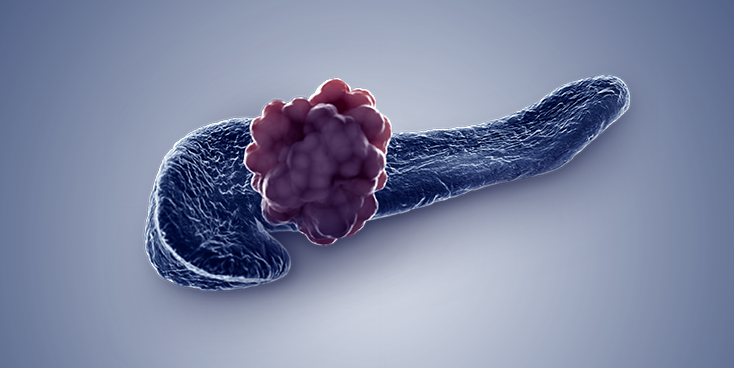Pancreatic adenocarcinoma, often simply referred to as pancreatic cancer, is a formidable adversary in the medical field. This combination between “silent symptoms” and a “strategic location” make pancreatic cancer particularly tricky. Every year, over 60,000 people in the United States are diagnosed with pancreatic cancer for the first time. Out of them, over half will only discover it after the tumor has spread to other organs.
Pancreatic tumors can often be classified into four types
- Pancreatic adenocarcinomas
- Adenosquamous carcinomas
- Colloid carcinomas
- Neuroendocrine or islet cell tumors
Out of these types, neuroendocrine tumors often offer the best prognosis. Meanwhile, Ductal adenocarcinomas are regarded as the most aggressive and lethal ones.
Treatment options for pancreatic cancer are limited: radiotherapy is not typically utilized due to its inefficacy, and there are only a few chemotherapy protocols available. Even when surgery successfully removes the entire tumor, residual cancer cells can remain and later develop into new tumors. This underscores the potential importance of immunotherapy in targeting and eliminating even single cancer cells. Unfortunately, as of now, innovative methods of immunotherapy aren’t routinely included in standard treatment protocols.
Chemotherapy for Pancreatic Cancer
Currently, only 3-4 chemotherapy protocols, including the prominent FOLFIRINOX regimen, offer some hope in shrinking pancreatic tumors to a surgically removable size. Given pancreatic adenocarcinoma’s aggressive nature, there’s an undeniable urgency for more potent treatments.
Immunotherapy for Pancreatic Cancer: A Beacon of Hope
If the body doesn’t respond well to pancreatic cancer chemotherapy, immunotherapy offers a glimmer of hope. The goal is to harness the body’s immune system to recognize and attack the cancer cells.
Oncolytic Viruses: These are unique viruses that attach solely to cancer cells, leaving healthy cells unharmed. After entering the tumor cell, the virus replicates, eventually causing the cancer cell to undergo apoptosis or natural cell death. Subsequently, these cells release new virions which target other tumor cells. Oncolytic viruses, used in the treatment of pancreatic cancer, can be delivered intravenously or directly into the tumor, sometimes combined with photodynamic therapy to boost the immune response.
Pancreatic Cancer Vaccines: A groundbreaking development, pancreatic cancer vaccine therapy aims to “educate” the immune system, enabling it to respond vigorously to the tumor. The vaccine introduces slightly modified cancer cells, making them more recognizable to the immune system. At Biotherapy International, we’re pioneering the use of such vaccines prepared from a patient’s cryogenically frozen tumor tissue, optimizing the immune response against the cancer.
Adaptive Cell Therapy: A pioneering approach in the fight against cancer. It employs intentionally mismatched killer cells, which purge cancer cells in a manner akin to rejection. To enhance specificity, monoclonal antibodies target antigens prevalent on certain cancer cells, marking them as “non-self”. This prompts a robust, rejection-like elimination. The killer cells are optimally activated prior to infusion but can be continuously stimulated by IL-2 post-infusion, also bolstering the patient’s native immune cells.
Success Stories for Pancreatic Cancer
Yamini’s journey stands out among pancreatic cancer survival stories. Following a relapse with metastasis after traditional treatments, he approached our clinic and underwent the groundbreaking IMAK treatment developed by Professor Slavin. A decade post-diagnosis, Yamini not only thrives as a rare pancreatic cancer survivor but also leads an everyday life, becoming an emblem of hope. Read Yamini’s full story here.
Pancreatic Cancer Prognosis and the Road Ahead
The five-year survival rate for pancreatic cancer is generally between 5 to 10%. The prognosis for those diagnosed with metastatic pancreatic cancer (stage 4 pancreatic cancer) is even more somber, with a five-year survival rate of barely 1%.
However, with the integration of new treatments such as immunotherapy for pancreatic cancer, there’s renewed hope. These treatments may not promise permanent remission, but they offer a chance at extended survival and improved quality of life.
Faced with grim statistics, one thing is clear: fundamentally new methods are absolutely necessary for progress in treating pancreatic cancer.
At Biotherapy International, we are on the “cutting edge”, offering new approaches in immunotherapy that go beyond traditional treatment protocols.


